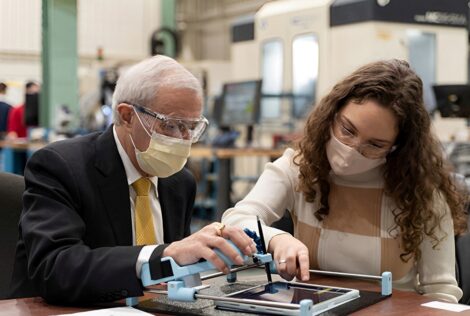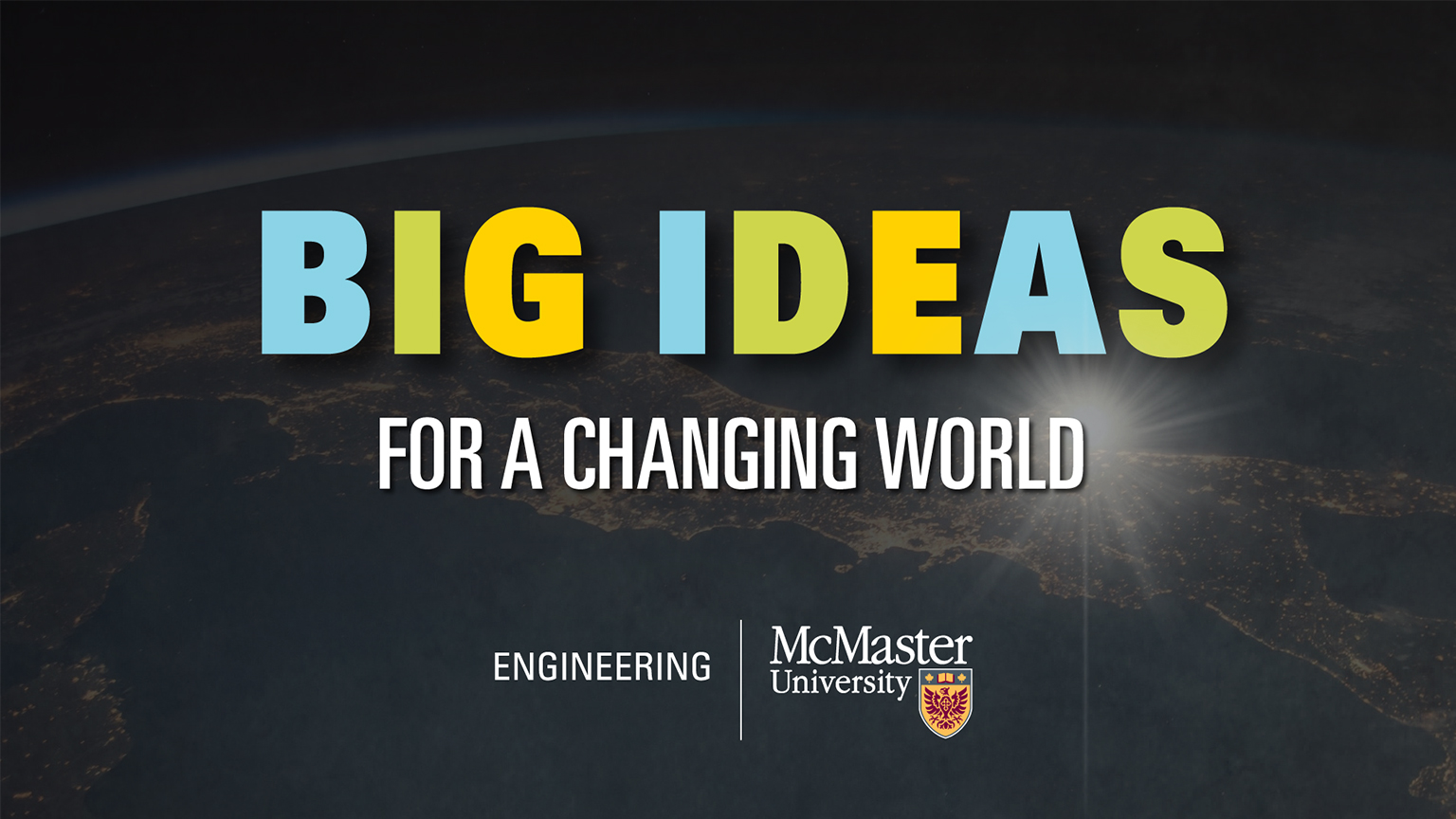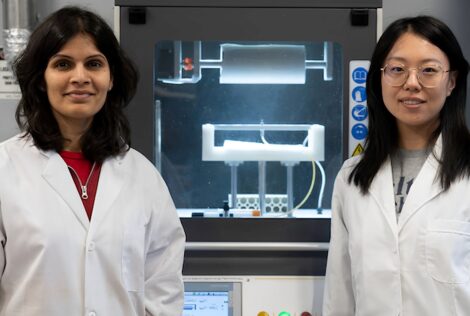

In episode six of the Big Ideas for a Changing World podcast, hear how the McMaster Manufacturing Research Institute (MMRI) and Hamilton-based packaging company, Whitebird, teamed up to swiftly produce face shields for thousands of Canadian frontline workers during the pandemic.
Simon Oomen-Hurst, MMRI’s program manager, says the team put their industry projects on hold in mid-March when it became clear Ontario would soon face a shortage of personal protective equipment (PPE). Oomen-Hurst, a McMaster Engineering alumnus, completed his B Eng in Mechanical Engineering and MASc in Mechanical and Manufacturing Engineering.
In March, team branched out in several directions to see where they could add the most value – first ventilators, then face shields.
He eventually connected with Peter Tamminga, Whitebird’s operations manager, which kickstarted a collaboration that would result in the production of over one million face shields in just six months.
“My initial reaction was excitement about this opportunity to assist during the pandemic,” says Tamminga, who grew his industry experience in industrial supply and manufacturing prior to joining Whitebird.
“Within a day, we were communicating back and forth and trying to identify materials for production.”
The face shields were initially made in two locations: the gym at People’s Church Hamilton, and a Christian school in Brampton. They strategically ramped up two sites so that if one had to shut down due to a COVID-19 case, the other could continue operating.
Over a million face shields have since been distributed to hospitals in Hamilton and surrounding areas, as well as other institutions across Canada in need of PPE.
With the onset of second wave of COVID-19 in Ontario, Oomen-Hurst says it’s important to continue to support Canadian manufacturing for essential items.
“That doesn’t mean buying absolutely everything Canadian – we live in a global environment. But I think it’s important for people to at least think about buying Canadian products and understanding that it does have a real impact on the success and the prosperity of our economy,” he says.
The MMRI partners with companies from all industries to solve challenges in their manufacturing or machining process. Earlier this year, the MMRI Industry Training Program received $300,000 from the Ontario government to support unemployed workers in the automotive and manufacturing industry.
“It was a lot of fun working with McMaster University. It opened my eyes to what collaborating with local businesses and local programs can really do in creating innovation,” says Tamminga.
To hear the full story, including career advice for those interested in the manufacturing sector, listen to Big Ideas for a Changing World. Available on YouTube, Spotify, Apple Podcasts and Google Podcasts.


